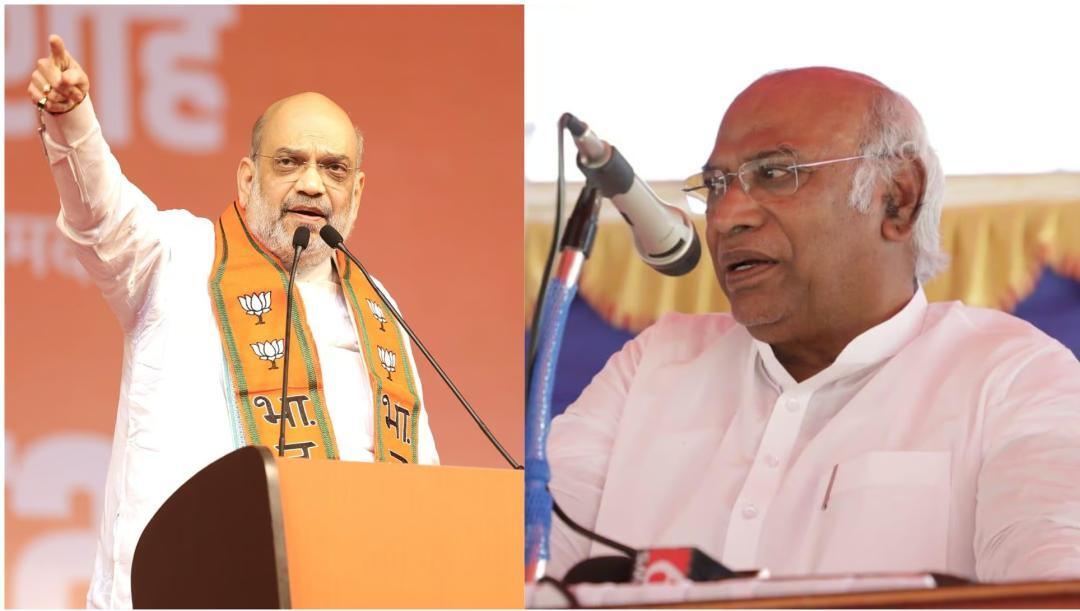In a legislative gaffe, Congress President Mallikarjun Kharge’s statement sparked a swift backlash from BJP leaders. Union Minister Amit Shah wasted no time in criticizing the Congress after Kharge mistakenly asserted during a public rally in Jaipur that the BJP takes credit for removing Article 371. Reacting to Kharge’s blunder, Shah launched a scathing attack on the Congress party and Kharge.
Shah shared a video clip of his speech on social media, clarifying, “Contrary to the Congress’s claim, it was not Article 371 but Article 370 that was abrogated by the Modi government. However, such egregious errors are unsurprising from the Congress. Their frequent missteps have plagued our nation for decades.”
In response to criticism from Shah and other BJP leaders, Congress leader Jairam Ramesh defended Kharge, attributing his mistake to a “slip of the tongue,” insisting that he meant to reference Article 370.
Article 371, alongside other provisions outlined in Articles 369 through 392 within Part XXI of the Constitution, addresses “Temporary, Transitional, and Special Provisions” concerning various states. While Article 370 pertains to “Temporary Provisions with respect to the State of Jammu and Kashmir,” Articles 371, 371A, 371B, 371C, 371D, 371E, 371F, 371G, 371H, and 371J delineate special provisions for specific states.
For instance, Article 371 confers special responsibilities upon the governor for the development of regions in Maharashtra and Gujarat, whereas Article 371A delineates protections for Nagaland’s religious and social customs. Similarly, other articles in this series provide specific provisions for states like Assam, Manipur, Andhra Pradesh, Telangana, Sikkim, Mizoram, Arunachal Pradesh, and Karnataka, addressing various developmental and administrative concerns.



